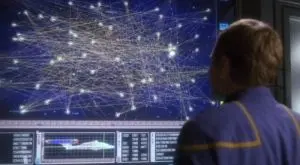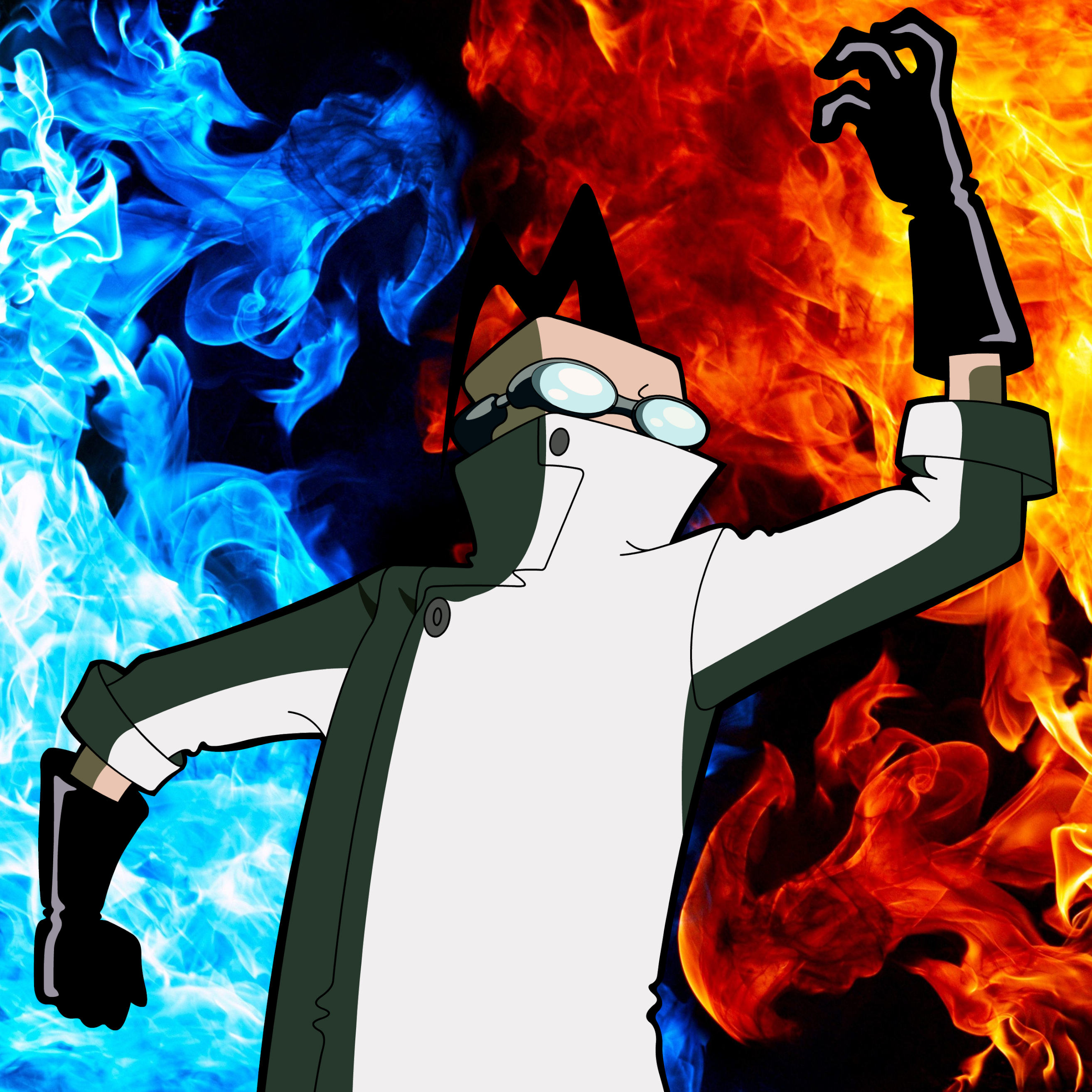Meanwhile Philip K. Dick writing in the late 1940s: In the 2020s humanity is almost completely extinct on account of WWIII, and Earth has been taken over by an AI who constructs more and more elaborate war robots who are hunting down the last surviving humans hiding in nuclear proof bunkers.
I honestly believe that if the US alone used all of its military funds on researching fusion power, we’d have figured it out by now lol.
NASA made remarkable innovations in its prime during the Apollo missions because of the amount of people efficiently working on so many new technologies with proper funding.
There’s a kind-of soft ceiling on scientific progress created by the Unknown Unknowns.
We didn’t think we’d need to optimize silicon waffer chips before we could engineer a solution to a net-positive fusion reaction. We didn’t consider the impact plastics tech in the 80s would have on our ability to survive in deep space in the 2000s. We had no idea adding lead to our gasoline and paint would set back our national intellectual output by a generation.
Consider that we do spend a substantive portion of our military budget on blue sky technological advancements. But because we put military leaders in charge, and because these dipshits will finance $10B to put screen doors on submarines if you promise them jobs on the company board when they retire, we end up with enormous malinvestment. Similarly, consider the $13B Microsoft sank into OpenAI to make a very advanced version of Clippy.
At some level, I don’t think its an issue of Take $X and put it into Y projects. I think you need to till the soil and irrigate the field and see what grows. That means doing basic shit like feeding and housing and vaccinating people, educating them at the primary-to-collegiate level at cost, and keeping credit lines open to even the “least worthy” of us, so you can get the kind of inventiveness that paves the way for advancement.
But with more funding we would likely have silicon wafer chips figured out sooner
There are diminishing returns, sure. But tech would still have more quickly developed with more than we have currently put in
I enjoyed how in Foundation novels they had mathematics that could predict the outcome of the future, had intergalactic travel, had personal shields, and a bunch of other fancy shit, but they were still using tapes to record information.
I loved it when he would continue to do it after the year 2000 had passed, without changing the format.
so 2000 late
Didn’t they switch to 3000 at some point? Feel like I remember Andy saying it
That sounds familiar. I don’t recall if it was a one time bit or recurring though.
Looks like it was recurring for a bit, I remember the hat move and trying to say “three thousand” with a frozen mouth after eating a bowl of ice cream is difficult
I just wanna agree and be in a thread with someone named after Picard and two froody dudes.
Are you named after a tiger and a hoopy?
👍
I still use 2000 like I did in the 90’s, which produces some really confused reactions from younger people.
Tbf, we still do use tape to record information. For archival, magnetic tape is still far and away the undisputed king of high density storage. We’ve got single tape cartridges in the 60TB range.
They just completely suck for regular access so they’re limited to archival only
So it kind of works in the Foundation universe because tapes are used for messages. Basically email but in audio format.
Or in old sci-fi books and movies when astronauts would be furiously writing calculations for navigation. Computers took most sci-fi authors by surprise.
I remember the show “Beyond 2000” or that 2020 was going to be this magical date that all things happened in.
Absolutely. It was the fuuuutuurre!
What, you chumps don’t have flying cars? Psh later.
zzzzzzzzzzzzzzzzzzzzzzzz
Dracula 2000.
I rest my case.
I think this still happens. People have no concept of time when we look 10+ years out. 10 years isn’t really that long. I think life is going to look very much the same in the next 40 years with the biggest change being AI tools if they can get past the “idiotification” of LLMs and the like as they are subject to human interaction.
I think you’re absolutely right. It’s funny watching old shows/interviews where people seem very similar to modern day “doomers”. They always had legitimate reasons to be worried (like we do), but similarly, they struggle to conceptualize life going on like normal a few decades into the future.
I can’t remember what it was, maybe some short story by Ray Bradbury, but I first read it in high school (so somewhere between 1999 and 2003) that took place in the distant future of 1998.
Yes 1984 was written in 1949.
I never looked it up but I always heard it was written in 1948 and he just reversed the last two numbers as it was an easy way to put it in the not too distant future.
Like I said though, I never had the inclination to look it up, maybe he wrote it in 1948 but it was first published in 1949.
Yes but also 1984 wasnt set in 1984; even the years were lies.
it’s 2030, the world is notching but hurricanes abd forest fires, also we got 1 guy on mars
we got one guy on mars
And he’s not coming back. We abandoned the program. Last food delivery gets to him in three years; after that its nothing.
Also, most people alive are survivors of sharknadoes, zombie fire, and desert oceans.
No potatoes on mars?
There are a myriad of reasons we are on the shitty timeline, but a non-insignificant one to me is how terrible classic sci-fi writers were at writing humans rather than planks with faces drawn on them that periodically state the author’s views on something. The focus of sci-fi on massive space operations and colonization of other planets from the beginning was warped by a dis-interest from sci-fi writers in the positive potentialities within the human psyche that are outside the grasp of cynical structures of power and control, the part of ourselves that just wants to tend a garden in their backyard and nothing more.
I think this has lead to very hollow visions of the future that were well suited to becoming the basis for people like Elon Musk’s world view. Sci-fi looked to the stars and tried to see into the future while ignoring the one thing we can count on about the future, humans will still be humans.
(I know this is a generalization and isn’t true as a rule)
That and also Modern Western Sci-Fi tends to wave away all the hard parts of engineering, politics, and economics when it comes to actually doing the thing.
How did Heinlein assume we’d colonize the Moon in “The Moon Is A Harsh Mistress”? Oh, don’t worry. We just bootstrapped ourselves up there Ayn Rand style.
How did Kirk and Picard and Janeway find themselves on Galaxy Class Starships traversing the deep corners of distant space? Well, first we did a quick global super-holocaust because of genetically engineered racism (don’t ask the finer details of that) and then we just… got better and turned Earth into a Utopia.
Maybe you buy into the more Posadist vision of First Contact, where a few starving refugees accidentally broke the luminal barrier with a rocket they assembled from spare parts. But the truly hard parts - the laboriously assembly and re-learning of scientific knowledge by each new generation, the failed bluesky research projects and dead-end engineering projects, the accumulation of trust between individuals within a state and states within the world necessary to mobilize materials and labor for these grand mega-projects - largely get breezed over.
An epic spaceship battle with the Trisolarians is, after all, far sexier to put on screen than a bunch of scientists grappling with the mathematics behind three spheres floating through space. So the old Asimov-style of SciFi as a series of entertaining word problems falls away, to be replaced by the Science Fantasy of Space Wizards and Warp Cores and Time Traveling Monkeys.
How did Kirk and Picard and Janeway find themselves on Galaxy Class Starships traversing the deep corners of distant space? Well, first we did a quick global super-holocaust because of genetically engineered racism (don’t ask the finer details of that) and then we just… got better and turned Earth into a Utopia.
Nah actually a crazy guy named Zefram Cochrane creates the first warp drive on earth using an old ICBM as a platform to build his spaceship, he is basically just doing it as a crazy entrepreneur trying to make money. When he launches it to test it for the first time, the use of the warp drive alerts the Vulcans, who come and investigate. Generally, Vulcans did not have a policy of interfering with other planets that had not yet become spacefaring, but since Earth now had developed the warp drive the Vulcans established first contact and then helped usher Earth into a new space age. If it wasn’t for the Vulcans, it is likely that Zefram Cochrane would have still been moderately successful but it is unlikely that the Federation would have arose complete with massive starships.
In the silly mirror universe where everyone is evil what happens is that instead of Zefram shaking hands with the Vulcans when they land and make first contact he and the other people in the camp shoot the Vulcans and steal their technology, eventually building an authoritarian galactic empire called the Terran Empire.
An epic spaceship battle with the Trisolarians is, after all, far sexier to put on screen than a bunch of scientists grappling with the mathematics behind three spheres floating through space. So the old Asimov-style of SciFi as a series of entertaining word problems falls away, to be replaced by the Science Fantasy of Space Wizards and Warp Cores and Time Traveling Monkeys.
I don’t want scifi to only be about the mathematics of spheres though.

I also don’t want my scifi to be just about Space Wizards (ughh Jedi and Sith are the most boring part of Star Wars by far), Warp Cores and Time Traveling Monkeys… I want my scifi to be about people and the positive capacity of humanity. When we look to imagined futures they should remind us that we have the agency of choice to pick what the future is, and that is totally possible for us to pick kindness and empathy. That is why Star Trek is so much more interesting and compelling than 99% of scifi, because while sometimes it is grim it is always concerned with the choices we make and imagining a future where we make better choices. Outside of Star Trek, the feeling of scifi has overwhelming been dystopian futures and though there is good reason to imagine dystopian futures as cautionary tales, I think they are also a drug that when overdosed on makes us believe dystopian futures are inveitable.
For example I wanted to love the scifi show Tales From The Loop, the appeal of Simon Stålenhag’s visions of alternate realities is undeniably captivating. However, all the characters seemed to act like complete sociopaths, the episode that did me in was where the two kids have their bodies swapped and kid who is switched into the body of the kid who has a much nicer life refuses to switch back. He goes on to just live that kids life presumably as an impostor… and I just… like I don’t even remotely believe 99.99% of humanity would make that choice (especially as a child who hasn’t even become comfortable in their own body yet). Some humans might, but that has far more to do with how abnormal those people are than it does to do with how technology might corrupt us with its power. Same thing with a lot of black mirror, it is this repeating vision of dystopian futures that just assumes that everybody will behave like sociopaths and it gets really tiring to me not the least because it fundamentally undermines the plausibility of the imagined future at a basic level. It subconsciously teaches us to deny the possibility of more positive futures since our imagination is a bayesian space defined and bounded by visions of the future provided to us by culture.
It is not so much about the year the story plays at but also about shying away from some stories nowadays.
A story where humans are Cool Bastards and the Aliens just Plain Evil?
Can’t have that. It wouldn’t be social critic enough.
Humans being smart and solving problems without crying and discussing their feelings in face of impending doom?
Naaah… would alienate the audience.
c/HFY and r/HFY show how to do it better…
Humans being smart and solving problems without crying and discussing their feelings in face of impending doom?
We Need More Mary Sue Protagonists!
I mean, yeah. I’d watch it.
I would be good if at least not every single lead protagonist was either an asshole, an idiot or an obvious traitor.
I generally prefer ensemble casts to “lead” characters to avoid some of that
deleted by creator
Thank fuck. Those are a terrible idea in like every way.
Also, we used them a lot in the attempted colonization of Vietnam?
We could actually make flying cars. It’s just not sustainable.
What’s missing is that garbage disposal food processor the Doc had for fuel conversion.
We already have flying cars. They are called helicopters.
We might soon have flying taxis. I am just not sure if I want us to have flying taxis.
Back to the Future 2 is set 30 years in the future… in 2015.
Blade Runner was set in 2019.
And here we are with people who think the gubberment made the eclipse happen.
They made the eclipse happen but no one went to the moon.
How else do you control the masses

What movie is this from? 🤔
Apocalypto
🙏

“Future events like this will affect us in the future…”
And yet somehow the lead character smokes cigarettes.
The uniform that both men and women wear in the movie are cut to show off the amazing fisique of the female lead but the cut is totally working on the male lead also.
They got that one right, at least
Doesn’t everyone vape now?
Cigarettes are as last century today as snuff boxes were to 1950’s authors.
It’s certainly far more popular among the youth than traditional smoking but there are plenty of cigarettes being sold still.
I’m a dinosaur and I like my cigarettes. I’m waiting for them to get banned altogether and I’ll have to grow my own tobacco :(
Honestly it would be a fuck load better for your health to grow, hang dry, cut, and roll your own vs buying the literal poison from PhillipMorris. The tobacco itself isn’t good by any means but the real threat to your health is the additives not the plant
I feel it’s the additives I would miss most. Not sure if or how I could recreate those.
Sci-fi is merely a mirror upon society. Hopeful times? Hopeful sci-fi. Dark times? Dystopian sci-fi.
In my mind, I’ve always suspected the reverse!
Scary times: people would gravitate toward comforting, optimistic media
Comfortable times: people would find dystopian, edgy media more appealing
I wonder if anyone has done a study on this before.
I think it more correlates to the setting.
In dark times, many stories may take place in a dark society or similarly dark theme, but with a story that turns out hopeful in the end. Other times the story might be told in a way to try to emphasize a certain part of life at that time. The darker media becomes more relatable and understandable in darler times. So the older sci-fi that has humanity doing crazy feats in years that have already past exist because the world was a genuinely happier and more hopeful time in the past.
Take the 1982 anime Super Dimension Fortress Macross, for example. Written in the early 1980s in Japan, they wrote that in 1999 a global war would be ended by a spaceship crashing on Earth, with all governments combining into a single Earth government to study the crashed ship in 2001. By 2009, (yes, in only 10 years) humanity is supposed to have learned so much from that ship that they have advanced to building transforming bipedal F-14s that can fly in space, and having restored said spaceship that crashed earlier, faster than light warp technology. This story was written while Japan was experiencing an economic boom, and things were pretty hopeful in Japan until the market crash of 1992. But the story is not about humanity achieving these technological feats, all that is explained in episode 1. The story is about humanity’s battle with alien invaders, and the realization that the aliens aren’t as alien as humanity thought, and how differences between cultures often result in war that is entirely unnecessary. I imagine if this story was written in 1992 or 1993 when the Japanese economy crashed, it likely would have been significantly darker in setting and tone.
I can’t quote a study, but I did read the book Germs Genes and Civilizations. The author observed that the power of the church grew during situations like the Black Plague or the 30 years war, and waned during the Enlightenment.














